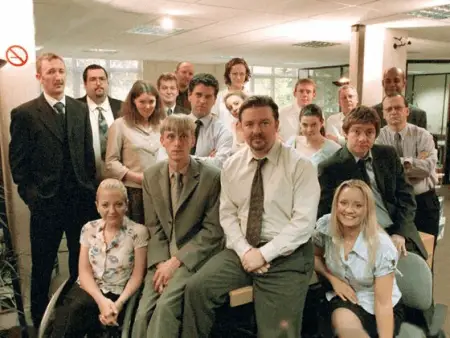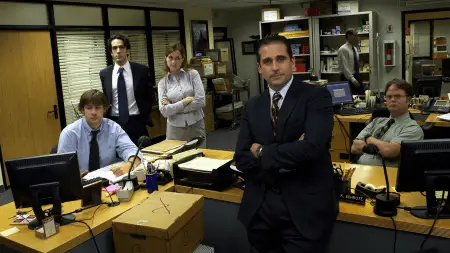A nation’s sense of humor is said to be closely related to its historical and cultural development as a country. The popular UK sitcom “The Office” was “tweaked” a bit when it was brought over to American audiences. This article seeks to find out how Americans and the British filter what’s funny and what’s not.
Summary Table
| British Humor | American Humor |
| Regularly uses irony | Does not make regular use of irony |
| Usually subtle | Slapstick humor is popular |
| Jokes meant to hide sarcasm or strong emotions | More straight forward and often obvious |
Definitions

British humor reflects the typical reserved nature of British society. More than anything, Brits love to use irony, to the extent that it is part of their daily interactions. They prefer a subtle approach while hiding a sarcastic tone. Their humor is often characterized by satirical takes on “the absurdity of everyday life”, which can be quite pessimistic at times. They joke about sexual taboos and class systems through puns and innuendos. For the Brits, deadpan sarcasm and poking fun at one’s self are considered normal comedic devices.
Brits can appreciate humor that hides seemingly strong emotion that would almost sound offensive to other cultures. While Brits are usually seen as uptight and conservative, everything is fair play. Jokes can be made about almost anything, although the lack of subtlety when tackling controversial subjects is always frowned upon.

American humor can be defined by the several kinds of humor Americans usually subscribe to. One of the most common types is slapstick, or physical comedy. Shows such as “America’s Funniest Home Videos” and “MTV’s Jackass” are popular specimens of comedy shows that feature slapstick pranks and blunders. Stand-up comedy is also a popular form of comedy where a stand-up comic uses an arsenal of jokes, usually in front of a live audience. Insult comedy is also popular among Americans. Cartoon shows like “The Simpsons” is a satirical show that pokes fun at American politics, traditions and authority figures alike. Impersonations are also a good source of laughs for many Americans. However, insult comedy, including in impersonations, can sometimes be hurtful, and may even lead to damage claims in extreme cases.
British Humor vs American Humor
So what’s the difference between British and American humor? Although Brits and Americans share a basic common ground in humor, slight differences do exist that makes one distinct from the other.
British humor is a reflection of the typically reserved demeanor of British society. They habitually use irony in their daily interactions; to the Brits, it is a normal way of dispensing humor. On the other hand, while Americans do appreciate irony, it is not regularly applied in everyday interactions, perhaps mainly to avoid offending anyone. British humor is also known to be characterized by a level of subtlety, which often veils sarcasm or even strong emotions. Brits like to hide meanings in their humor. Americans are known for being upfront, and this is made obvious in how they like their comedy shows: straight forward and direct to the point. It’s often a conscious effort to let others know that they are joking.
Video
Here’s a YouTube video for more about British and American humor.
.




